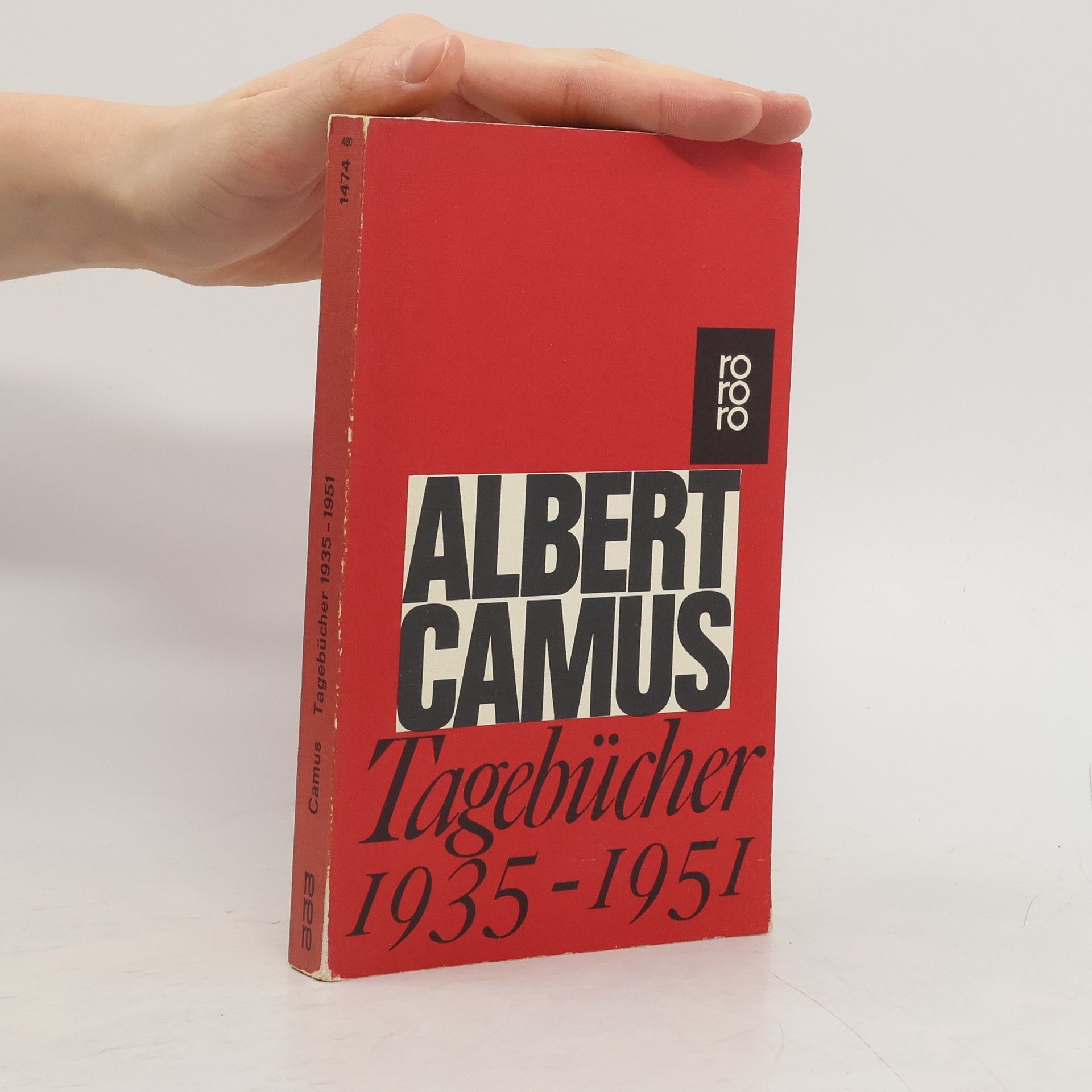From 1935 until his death, Albert Camus kept a series of notebooks to sketch out ideas for future works, record snatches of conversations and excerpts from books he was reading, and jot down his reflections on death and the horror of war, his feelings about women and loneliness and art, and his appreciations for the Algerian sun and sea. These three volumes, now available together for the first time in paperback, include all entries made from the time when Camus was still completely unknown in Europe, until he was killed in an automobile accident in 1960, at the height of his creative powers. In 1957 he had been awarded the Nobel Prize for Literature. A spiritual and intellectual autobiography, Camus' Notebooks are invariably more concerned with what he felt than with what he did. It is intriguing for the reader to watch him seize and develop certain themes and ideas, discard others that at first seemed promising, and explore different types of experience. Although the Notebooks may have served Camus as a practice ground, the prose is of superior quality, which makes a short spontaneous vignette or a moment of sensuous beauty quickly captured on the page a small work of art.Here is a record of one of the most unusual minds of our time.
Notebooks Series
This series offers a unique window into the mind of one of the 20th century's most significant thinkers. The entries capture sketches for future works, insights from reading, and deep personal reflections. Readers can witness the evolution of ideas and themes, as well as the author's meditations on life, death, and art. It provides a fascinating, intimate glimpse into a creative process.




Recommended Reading Order
From 1935 until his death, Albert Camus kept a series of notebooks to sketch out ideas for future works, record snatches of conversations and excerpts from books he was reading, and jot down his reflections on death and the horror of war, his feelings about women and loneliness and art, and his appreciations for the Algerian sun and sea. These three volumes, now available together for the first time in paperback, include all entries made from the time when Camus was still completely unknown in Europe, until he was killed in an automobile accident in 1960, at the height of his creative powers. In 1957 he had been awarded the Nobel Prize for Literature. A spiritual and intellectual autobiography, Camus' Notebooks are invariably more concerned with what he felt than with what he did. It is intriguing for the reader to watch him seize and develop certain themes and ideas, discard others that at first seemed promising, and explore different types of experience. Although the Notebooks may have served Camus as a practice ground, the prose is of superior quality, which makes a short spontaneous vignette or a moment of sensuous beauty quickly captured on the page a small work of art.Here is a record of one of the most unusual minds of our time.
Notebooks 3. 1951-1959
- 288 pages
- 11 hours of reading
This final volume, recorded over the last nine years of his life, takes on the characteristics of a personal diary.--[book jacket].
Related books
"Wert haben oder keinen Wert haben. Schöpferisch sein oder nicht. Im ersten Fall ist alles gerechtfertigt. Alles, ohne Ausnahme. Im zweiten Fall herrscht vollkommene Absurdität. Bleibt die Wahl des ästhetischen Selbstmords: Heirat + 40 Stunden oder Revolver." Werkstattaufzeichnungen, Gedankenskizzen, Entwürfe und Notizen - ein eindrucksvolles Tagebuch und ein authentisches Stück Biographie.